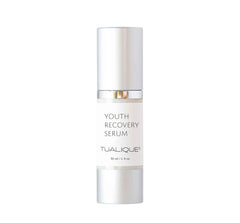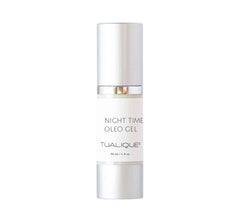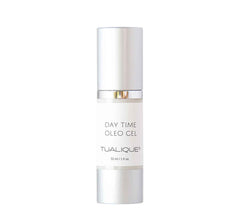Vitamin C in skin care - how to avoid skin damage

You may already know that Vitamin C is one of the key ingredients of great skin. But did you know that not all Vitamin C is created equal?
Vitamin C's powerful capacities
Studies show that Vitamin C:
- sparks collagen production, promoting the smooth, firm appearance of young, healthy skin
- reduces melanin production, making your skin brighter
- has powerful anti-oxidant capacities, protecting your skin from damaging free-radicals that increase premature aging
- Increases the effectiveness of your sunscreen
-
boosts your natural UV defenses
But Vitamin C comes in different forms, and it’s important to know which one is right to put on your skin when for maximum benefits and to avoid skin damage.
Oxidized Ascorbic Acid can cause skin damage!
The most natural form of Vitamin C is ascorbic acid—a highly unstable form of Vitamin C that has a very short usable life. That’s why you have to drink orange juice within a week if you don’t want it to spoil.
If you’ve ever wondered why some skin products with Vitamin C can turn your skin orange, it’s probably because they’ve been on the shelf too long. Ascorbic acid turns orange-brown when it goes bad. And it can cause skin damage.
We’re big fans of ascorbic acid in orange juice, but we don’t use it in our products.
We put three different kinds of high-quality modern cosmetic Vitamin C into the TUALIQUE skin care line, harnessing the power and benefits of this powerful anti-oxidant in a longer-lasting form.
Water-soluble stable Vitamin C
Two are water-soluble, very stable, effective, and safe forms of Vitamin C :
- Magnesium Ascorbyl Phosphate
- Aminopropyl Ascorbyl Phosphate
Magnesium Ascorbyl Phosphate increases your skin elasticity and hydration levels. Aminopropyl Ascorbyl Phosphate was shown to offer anti-oxidant effects
Oil-soluble Vitamin C
The third is a safe, oil-soluble Vitamin C that plumps your skin with moisture and improves your skin tone: Tetrahexyldecyl Ascorbate.
Oil-soluble Vitamin C, which—although highly effective—may lead to skin damage if exposed to sunlight. A study with Ascorbyl Palmitate (a less effective oil soluble Vitamin C and often found in make-up and skin care products) shows that it can cause skin damage when used during the day. We recommend using oil-soluble Vitamin C only at night.
Vitamin C in our products:
Aminopropyl Ascorbyl Phosphate and Magnesium Ascorbyl Phosphate
The Youth Recovery Serum contains Aminopropyl Ascorbyl Phosphate and Magnesium Ascorbyl Phosphate which are carried by a liposomal delivery system that enhances stability and effectiveness. 
This serum is a powerful anti-aging transformer for all skin types that keeps your skin vibrant from morning to night.
Magnesium Ascorbyl Phosphate
The Vitamin C Radiance Serum contains Magnesium Ascorbyl Phosphate.  The Vitamin C Radiance Serum is an intensive treatment that strengthens the natural protective barrier of stressed skin.
The Vitamin C Radiance Serum is an intensive treatment that strengthens the natural protective barrier of stressed skin.
This unique protection complex supports your skin in the fight against aging and structural damage, while increasing resilience.
Tetrahexyldecyl Ascorbate
The Night Time Face Oil contains Tetrahexyldecyl Ascorbate.  This nourishing face oil triggers cell repair and regeneration and restores your skin’s youthful plumpness with Vitamin C and carefully selected botanical extracts.
This nourishing face oil triggers cell repair and regeneration and restores your skin’s youthful plumpness with Vitamin C and carefully selected botanical extracts.
Day Time Face Oil
 If you want to invigorate dry skin and provide extra moisture loss protection during daylight hours, we recommend Day Time Face Oil.
If you want to invigorate dry skin and provide extra moisture loss protection during daylight hours, we recommend Day Time Face Oil.
This rich, regenerative protective face oil does not contain oil-soluble Vitamin C, which—although highly effective—may lead to skin damage if exposed to sunlight.
So now you know. Use the right Vitamin C at the right time. And if you don’t want to look like a carrot, ascorbic acid might go better in your stomach than on your face!
Sources:
Vitamin C and Skin
http://lpi.oregonstate.edu/mic/micronutrients-health/skin-health/nutrient-index/vitamin-C
Vitamin C derivative ascorbyl palmitate promotes ultraviolet-B-induced lipid peroxidation and cytotoxicity in keratinocytes
http://www.ncbi.nlm.nih.gov/pubmed/12445199
Double-blind, half-face study comparing topical vitamin C and vehicle for rejuvenation of photo damage
http://www.ncbi.nlm.nih.gov/pubmed/11896774
In vitro antioxidant activity and in vivo efficacy of topical formulations containing vitamin C and its derivatives studied by non-invasive methods.
http://www.ncbi.nlm.nih.gov/pubmed/19159387
Non-Sunscreen Photo-Protection: Antioxidants Add Value to a Sunscreen
http://www.jidsponline.org/article/S1087-0024(15)30512-8/abstract?cc=y=
In vitro antioxidant activity and in vivo efficacy of topical formulations containing vitamin C and its derivatives studied by non-invasive methods.
http://www.ncbi.nlm.nih.gov/pubmed/19159387
Products of oxidized L-ascorbic acid damage acellular DNA.
http://www.ncbi.nlm.nih.gov/pubmed/22555787
Leave a comment
Comments will be approved before showing up.
Also in Articles
The secret to radiant skin - exfoliation - here's the how to
Under optimum conditions, new skin cells form constantly and shed after 30 days.
But sometimes this process doesn’t work as well as it should. There are a few reasons why this might happen. As you age the shedding process slows down and it takes much longer to shed your dead cells.
10 valuable tips for winter-dry skin
You may love a gentle nibble from Jack Frost, but if you don’t change how you take care of your skin when winter is here, your skin can get dry and itchy. If you follow these simple tips, you’ll find that dry skin will be a thing of the past and fresh and radiant may be your new winter look!


